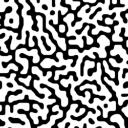Yahoo Answers is shutting down on May 4th, 2021 (Eastern Time) and beginning April 20th, 2021 (Eastern Time) the Yahoo Answers website will be in read-only mode. There will be no changes to other Yahoo properties or services, or your Yahoo account. You can find more information about the Yahoo Answers shutdown and how to download your data on this help page.
Trending News
How can a fraction be a Integer, if the fraction is not equal to a whole number?
3 Answers
- SqdancefanLv 74 years agoFavorite Answer
It depends on your definitions.
Some authors define "whole numbers" as non-negative integers. By that definition, any negative integer is not a whole number, so any fraction that is equal to a negative integer will not be equal to a whole number.
Whether you consider -2/1 or -4/2 to be a fraction or an integer is between you and your text author. These have the same integer value (-2), but their form is that of a fraction, not an integer. If you consider whole numbers to be non-negative, then neither is a whole number in any event. So, depending on your definitions, -2/1 is a fraction that is an integer, but not a whole number.
- Anonymous4 years ago
A fraction is strictly an ordered pair of integers, (m, n) say, in which the criterion for equality, say (m, n) = (m', n') is mn' = nm'.The set of such ordered pairs contains a subset {(m, 1)} which is isomorphic to the iset of ntegers, and in an abstract sense is indistinguishable from them. This is the justification for writing (m, 1) (usually written m/1) = m.
- JLv 74 years ago
Some people define "whole numbers" as the set "0, 1, 2, 3, 4, 5, ...".
With that definition -7/1 and -12/6 are fractions which are integers but not whole numbers.



